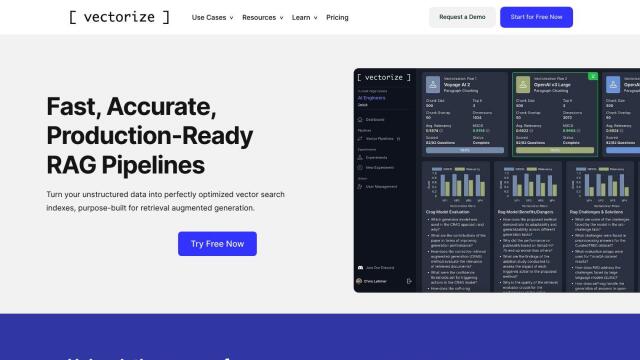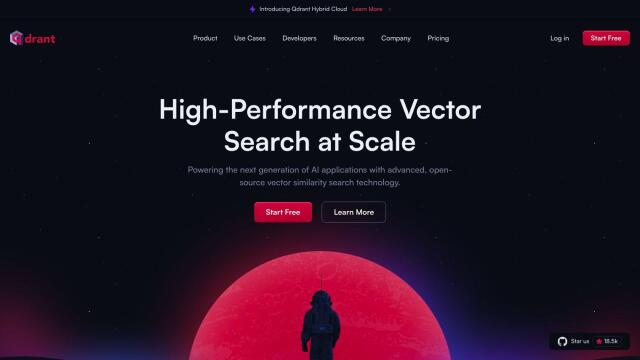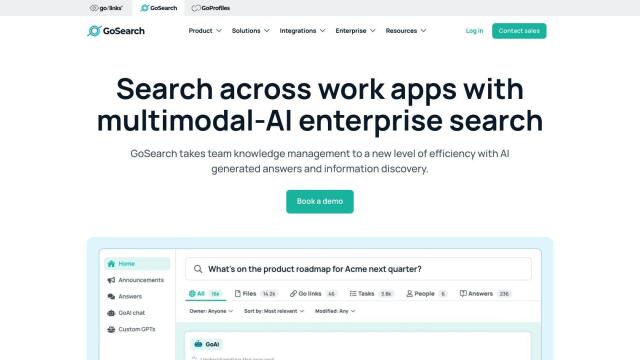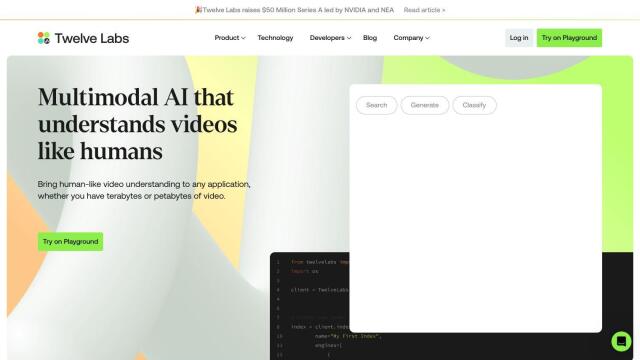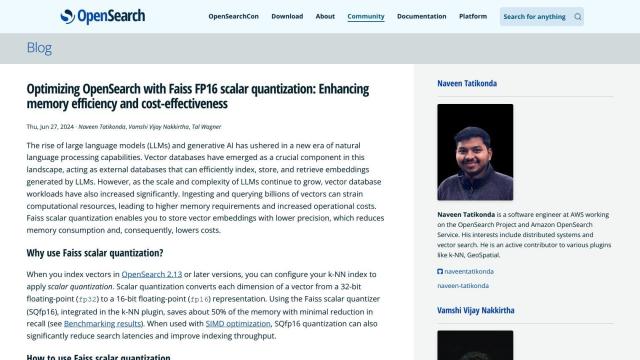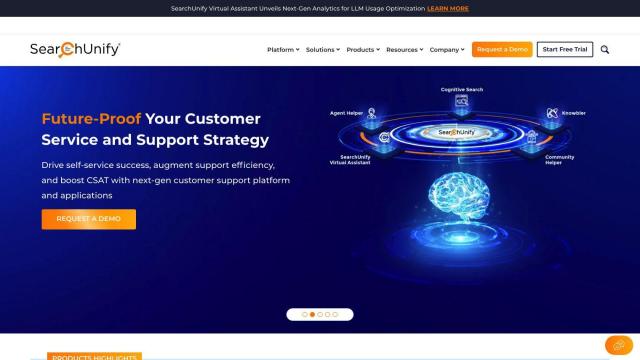
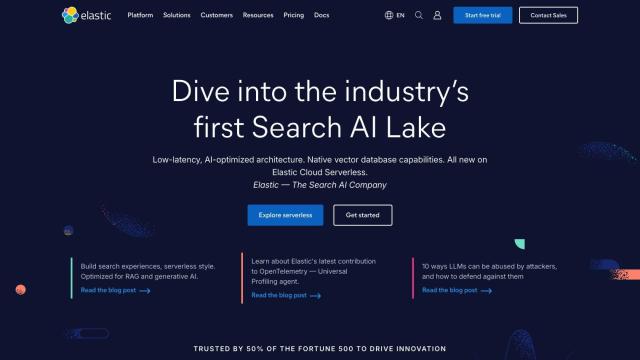
Elastic
If you're looking for a Jina alternative, Elastic is a good option. Elastic offers a broad AI platform with tools for search, analytics, data ingestion and visualization. It's got generative AI abilities for LLM integration and vector database improvements that can help you get more out of your search and data processing. The platform spans many industries, and pricing is flexible with a free trial, so it's a good option if you want to boost search and make your operations more efficient.


Vespa
Another option worth considering is Vespa, a unified search engine and vector database that can perform vector search, lexical search and search in structured data. Developers can quickly create production-ready search applications that combine those abilities with machine-learned models. Vespa is good for search, recommendation and personalization, and for running machine-learned model inference at scale with low latency, so it's a good option if you want to build AI into your data processing.


Algolia
Algolia is another good alternative, with a collection of tools for fast, scalable and personalized search. It can combine keyword search with vector understanding and dynamic re-ranking based on user behavior and trends, and it's good for a variety of industries and use cases, including enterprise search, headless commerce, mobile and app search. Algolia has flexible pricing and lots of documentation so developers can easily integrate it into their projects.


Trieve
If you need more advanced search abilities, you might want to look at Trieve. Trieve offers a full-stack infrastructure for building search, recommendations and RAG experiences. It includes private managed embedding models, full-text neural search, semantic vector search and hybrid search. That means it's good for use cases that need more advanced search abilities like semantic search and re-ranker models. Trieve offers flexible hosting options and transparent pricing, including a free plan for non-commercial use.



